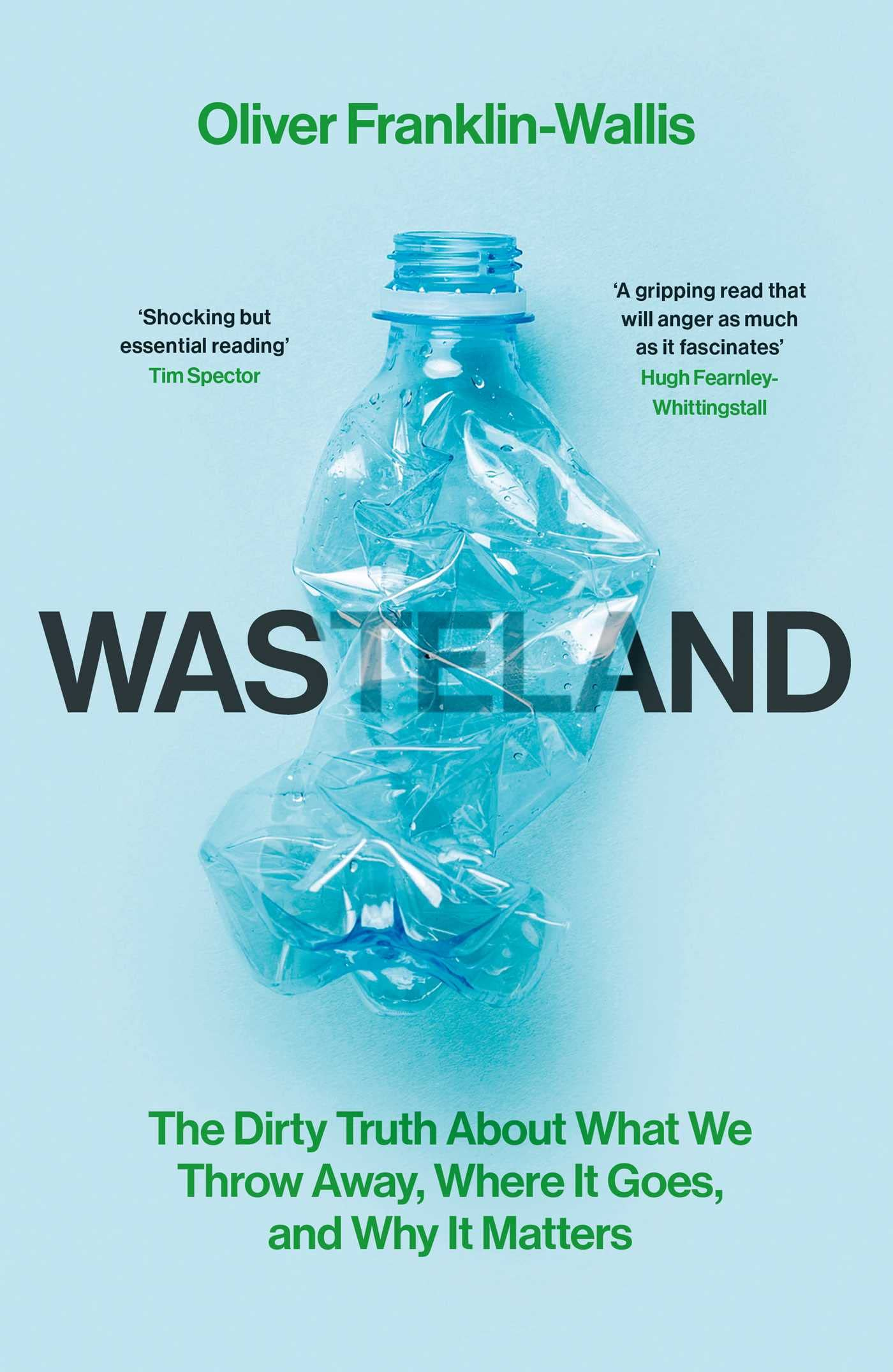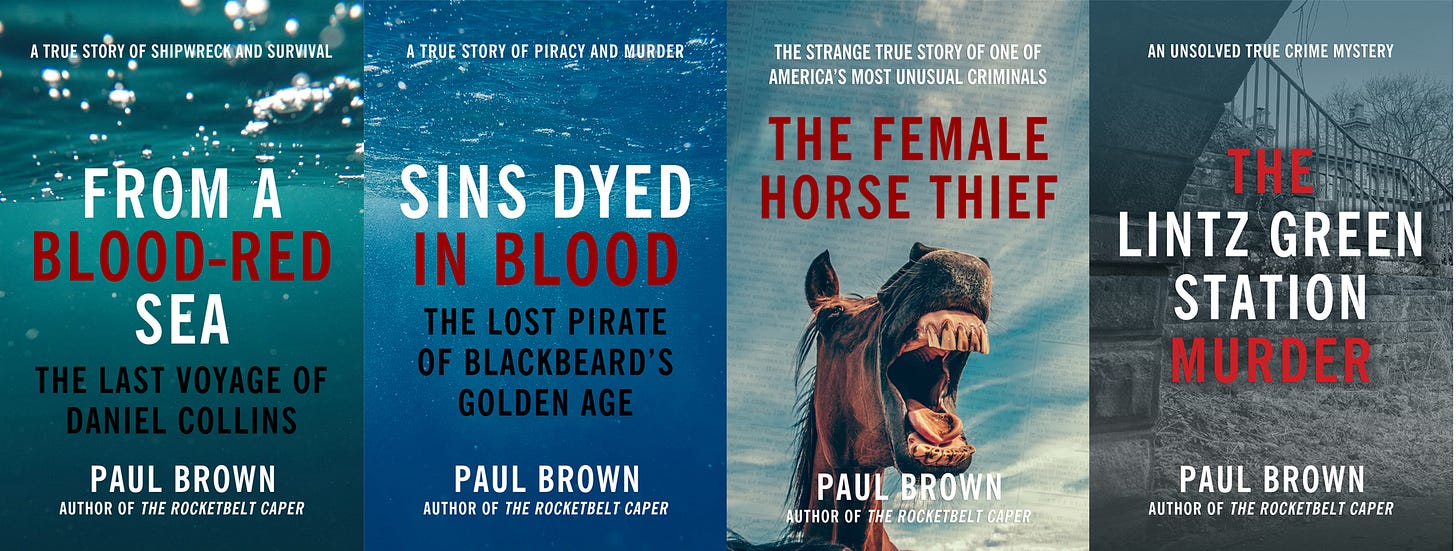Two Starlings on a Chimney Pot
A startling tale of hidden treasure; PLUS special guest Oliver Franklin-Wallis on the dirty truth about our waste; ALSO paywalls, blockbusters, and a Tyne Bridge trailer
This brief story from the 5 March 1831 Preston Chronicle, in Lancashire, England, is a succinct gem that requires minimal embellishment:
SINGULAR DISCOVERY OF HIDDEN TREASURE — About a month ago, Edward Shaw, carter to Mr. Bainbridge, of Leyland, on coming to the toll bar on Middleforth Green in Penwortham, observed a boy with a gun attempting to point it at a starling upon the chimney top, but from the circumstance of the toll house having an overshot roof, he could not bring the gun to bear upon his game. Shaw, therefore took the gun, and just [as] he was taking aim, another starling flew to the chimney, and both birds were instantly shot. It happened that both of them fell down the chimney, and in descending, by the fluttering of their wings, dislodged two small bags or purses, one containing 31 or 32 sovereigns in gold, and the other 2 or 3 pounds in silver. It is conjectured that the money had been placed there for safety by the late Richard Bond, the toll keeper who dropped down dead, near the house, about two years ago.◆
Leyland and Penwortham are towns in South Ribble, Lancashire. Census records from the area confirm the names of both Edward Shaw and Richard Bond. Bond had died in 1825 at the age of 83. Back then, sovereigns had a face value of one pound, but today, they are literally worth their weight in gold. If they were, for example, 1820s gold sovereigns featuring the head of George IV, they could be worth anywhere between £600 and £2500 each, depending on condition. (Earlier rarities, such as an 1819 George III sovereign, might be worth £200,000 each.) Add the silver, and the stash was likely worth a life-changing small fortune.◆
Now the Recommended section with special guest Oliver Franklin-Wallis:
Recommended:
Wasteland: The Dirty Truth About What We Throw Away by Oliver Franklin-Wallis
I love getting rid of stuff. I am whatever the opposite is of a hoarder. I’m a keen recycler (and charity bag filler). But I often despair at the sheer volume of stuff we throw away, and wonder what the heck happens to it all. Award-winning journalist and British GQ features editor Oliver Franklin-Wallis is on the case in this tremendously informative and readable book. He travels across the UK and around the world, from mountainous landfills and recycling centres to ghost towns and nuclear dumps, to find out where everything we chuck out goes. (It’s one of those books that’s so full of startling facts that you might, for example, annoy your wife by constantly relaying them to her while she’s trying to read something else...) We need to do something about our waste crisis, and Wasteland is a brilliant wake-up call. It seems rinsing and sorting our empty yoghurt pots might not be enough. Here’s a link to buy Wasteland on Amazon.
Oli was kind enough to answer some quick questions:
Paul: What’s the most surprising thing you uncovered about our discarded waste while writing Wasteland?
Oli: There are so many, but the thing that shocked me most was probably the extent of greenwashing that goes on, from ‘compostable’ plastics that don’t compost, to ‘ocean plastic’ that is nothing of the sort. Even something as basic as how we count recycling, it turned out, is not what is actually being recycled, but what arrives at the front door. So the whole system is built on an accounting trick. How much is actually being recycled is still a mystery, but we know it’s not as much as people think.
Paul: What’s your best tip for balancing investigative research with compelling storytelling?
Oli: Something I’m always cognisant of is that the reader almost always knows less than I do, so I try and just write as if they’re on the journey with me. All reporting is a detective story; unfortunately with climate writing it’s often a crime story. So I think about that, and I think about trying to capture what I love about the reporting process, which is the characters, and the fascinating, outsized nature of these places that most people would never normally see.
Paul: Can you recommend another non-fiction book that readers of Singular Discoveries might enjoy?
Oli: So many! This summer I adored Lucy Jones’ new book Matrescence. I’ll devour anything by David Grann, including his latest The Wager. The book that I think most energised my own writing in Wasteland was Fathoms by Rebecca Giggs, a wonderfully poetic science writer. One of those books that reopens your mind to what nonfiction can be.
Many thanks to Oli for his time. I’ve added Wasteland to the Singular Discoveries Amazon bookshelf.*
Oh, and if you’d like to listen to the audiobook of Wasteland (or The Wager, or Fathoms, or anything else), you can currently get 3 months of Audible for £3, which gets you credits for 3 books to download and keep. The deal expires at 10 AM on 11 September 2023, and terms apply etc. Click here to grab it.
Now some news about supporting the future of Singular Discoveries…
News:
(Pay)walls Come Tumbling Down
I don’t like paywalls. As far as possible, I try to keep my stuff outside them. I want my writing to be as widely read as possible, and paywalls prevent that. So, for starters, everything I’ve written on Medium is now free to read and outside the Medium paywall. (Including The Dog and the Dinosaur.) And I have no plans to lock this newsletter behind a paid subscription.
But I do think my work has value. “It’s free to read, but not free to write,” as they say. So I’m trying new ways of asking readers for support. The best way to support my writing is to share it with friends and followers. Another great way is to buy my books. They’re all on my website and on my Amazon page. Buying other books via our Amazon links also generates a few pennies.
I’ve also set up an eBook store, initially featuring the following four short books at 99p each or “pay what you want”. More books will be added soon.
Alternatively, you are more than welcome to pay whatever you think it is worth for this newsletter and for other stuff I post online. There are two ways you can do this: “Buy me a coffee” on Ko-Fi, which is basically an online tip jar; Or make a voluntary payment via Fair Payments for Writers, which is a new one-off micropayment system. Both methods are quick and secure, and should hopefully be as frictionless as possible — let me know how you find them and which you prefer.
So, from now on you might occasionally see links like this:
Clicking the banner will take you to a simple page that links to the various ways you can support my writing. Thanks for the clicks and support.
Pitching the Best Ever Epic Summer Blockbuster..!
In other news, the good folks at Narratively included my story about The Fisherman Who Discovered The Loch Ness Monster among their “5 Narratively Epics That Are Summer Blockbusters-in-Waiting” AND “The 3 Best Pitches I’ve Ever Received”. Narratively has moved to Substack and implemented a paid subscription model. I totally get why they’ve done this, but you’ll need to subscribe to avoid being prevented from reading these stories by — you guessed it — a paywall. You can sign up for a free 7-day trial — after that, it’s $6 a month or $50 a year.
Tyne Bridge Trailer
Click below to watch a brand new trailer for my book The Tyne Bridge: Icon of North-East England. The book is out now and available from all good bookshops and some rubbish ones. All the info is here.
And finally, you might have noticed that Singular Discoveries has a new logo. It’s the start of a slight rebrand to coincide with the arrival of something exciting coming very soon — I hope to tell you about it in the next edition.
That’s all for now. More next time. As ever, please do subscribe and share. Oh, and thank you for supporting Singular Discoveries.
*Amazon links are affiliate links. If you use them, I may receive a small payment to help run this free newsletter.








